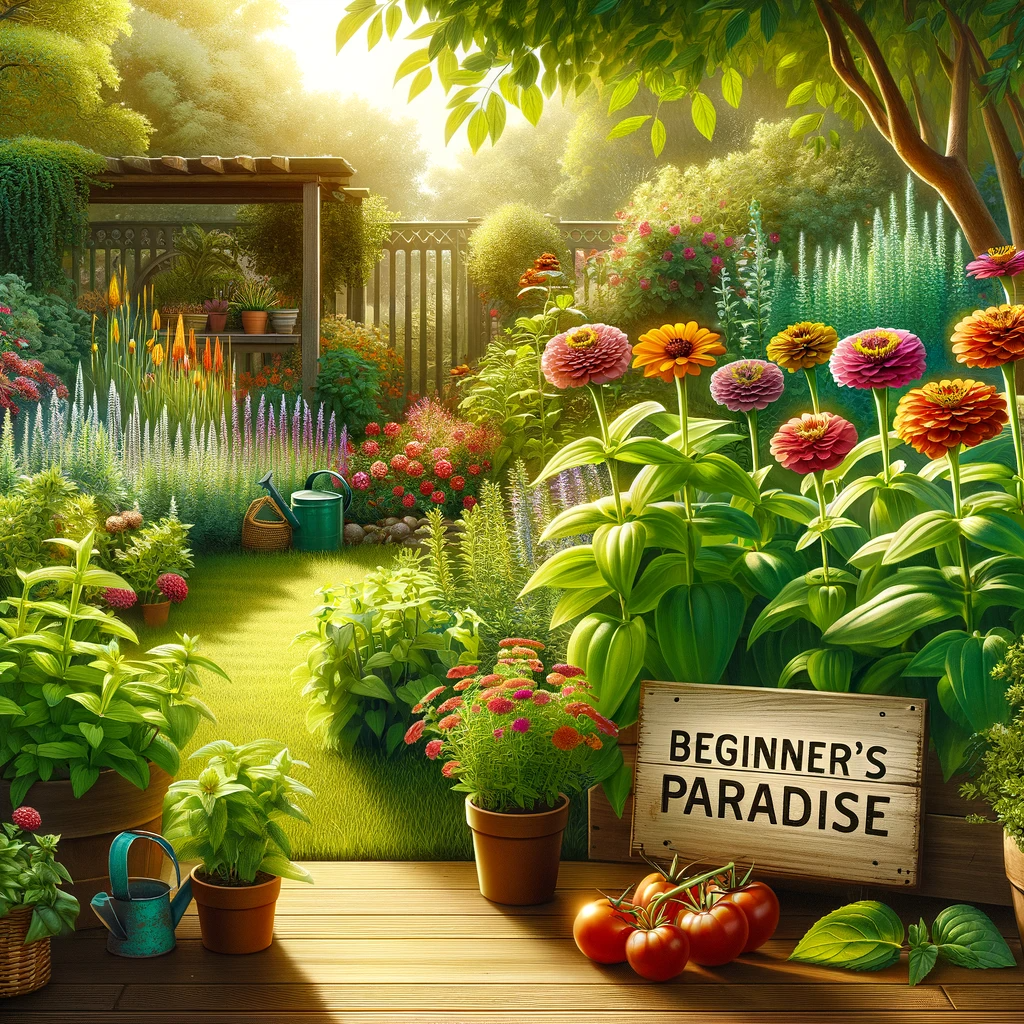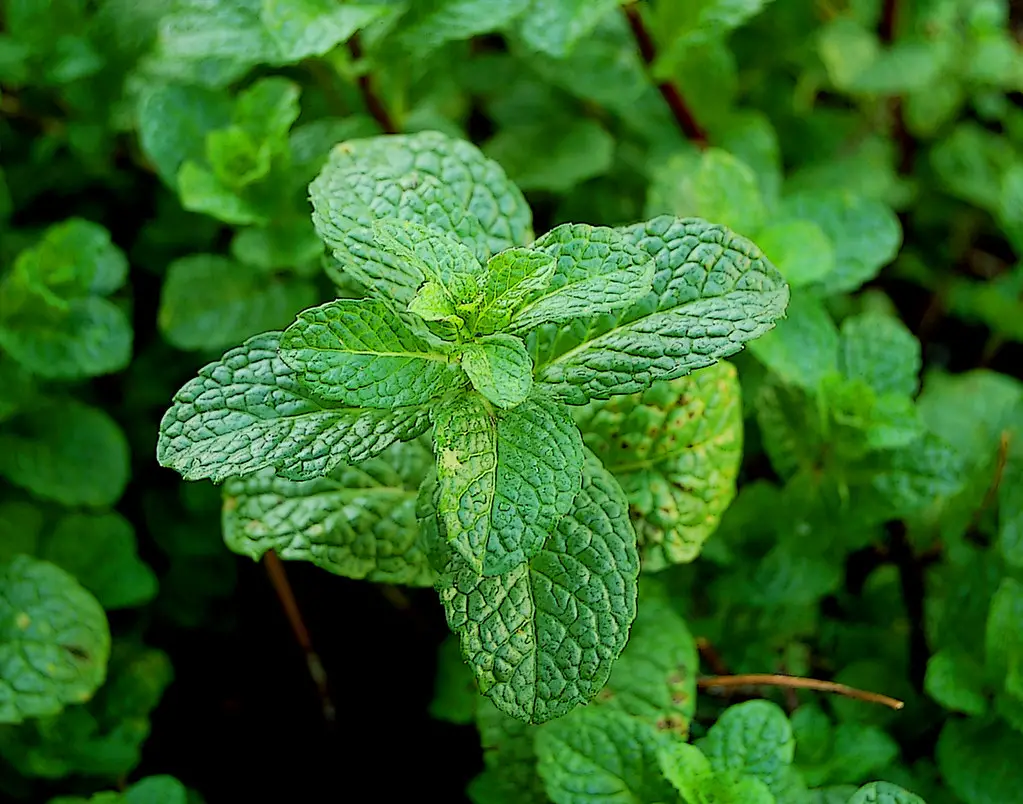
Table of Contents
What are the 6 best plants to grow for beginners?
Gardening is not just a hobby; it’s a journey into the heart of nature, offering peace, satisfaction, and a profound sense of accomplishment. For those embarking on this journey, beginning with plants that are forgiving and easy to care for is key. In this article, we delve into the world of gardening, focusing specifically on plants that are ideal for beginners. Discover the joy of nurturing life from the soil and watching it flourish under your care. For more insights into our philosophy of gardening, visit our Home page.
Section 1: Understanding Gardening Basics
Before you plant your first seed, understanding the basics of gardening is crucial. From soil preparation to understanding the water and sunlight needs of different plants, these fundamentals form the foundation of a thriving garden. Whether it’s choosing the right soil type or determining the optimal watering schedule, getting these basics right can make a world of difference in your gardening experience. For more detailed guidance, explore our comprehensive guide on Gardening Basics.
Section 2: Top Plants for Beginners

- Mint: This perennial herb is not only easy to grow but also adds a fragrant touch to your garden. Perfect for full sun to partial shade, it thrives in damp, well-draining soil. Mint is known for its vigorous growth, so keep it in check by planting in pots or trimming regularly.
- Zinnias: With their bright, daisy-like flowers, zinnias are a joy to grow. These hardy annuals prefer well-draining soil and plenty of sunshine. They’re also great for attracting butterflies and hummingbirds, adding life and color to your garden.
- Black-eyed Susans: These cheerful wildflowers are perfect for adding a splash of yellow to your garden. Drought-tolerant and easy to care for, they thrive in full sun and can be planted in mid-spring or fall.
- Lamb’s Ear: Known for its unique, velvety-soft leaves, Lamb’s Ear is an excellent choice for beginners. This drought-tolerant perennial thrives in full sun to partial shade and requires minimal care, making it a perfect addition to any starter garden.
- Forsythia: Brighten up your garden with the vibrant yellow flowers of Forsythia. These tall shrubs are one of the first to bloom in spring and require little attention, thriving in full sun and evenly moist soil.
- Tomatoes: A favorite among gardeners, tomatoes are rewarding and relatively easy to grow. They require good sunlight and support as the fruit begins to form. Beginners might find bush varieties easier to manage.

Section 3: Gardening Techniques for Beginners
Gardening is an art and a science, and mastering a few basic techniques can significantly enhance the health and yield of your plants. From understanding how to properly water your plants to knowing when and how to prune, these techniques are essential for any budding gardener. We break down these methods in an easy-to-understand manner in our Gardening Techniques section.
Section 4: Starting Your First Garden
Embarking on your gardening journey can be both exciting and overwhelming. Where do you start? What do you need? Our guide on Starting a Garden takes you through the essential steps, from selecting the right location in your yard to planting your first seeds or seedlings. We provide practical advice to make the process enjoyable and successful.
Section 5: Sustainability in Gardening
Embracing sustainability in gardening is not just beneficial for the environment, but it also enriches your gardening experience. Sustainable practices, such as using organic fertilizers, conserving water, and composting, not only enhance the health of your garden but also contribute to a healthier planet. These practices ensure that your gardening efforts are eco-friendly and sustainable in the long run. Dive deeper into sustainable gardening methods on our Sustainability page.
Section 6: Expanding Beyond Basics
Once you have mastered the basics and your garden starts to flourish, you might find yourself ready to explore more challenging aspects of gardening. This can include experimenting with different plant species, trying out advanced gardening techniques, or even venturing into homesteading. As you grow in confidence, your garden will grow in diversity and complexity. For more on how to expand your gardening horizons, visit our Homesteading section.
Embracing the Gardening Community
As you cultivate your garden, consider connecting with the gardening community. Whether it’s local gardening clubs or online forums, these communities can be invaluable sources of support, advice, and inspiration. Sharing experiences, challenges, and successes with fellow gardeners can enrich your journey and provide new perspectives on gardening.
The Therapeutic Benefits of Gardening
Gardening is more than just a pastime; it’s a therapeutic activity that can significantly enhance your well-being. The act of nurturing plants, immersing in nature, and engaging in physical activity contributes to mental and physical health. The garden becomes a sanctuary, offering a peaceful retreat from the hustle and bustle of daily life.
| Benefit | Description |
|---|---|
| Mental Relaxation | Gardening offers a peaceful escape, allowing you to unwind and relax your mind. It’s a great way to take a break from the stress of daily life. |
| Physical Exercise | Engaging in gardening activities provides physical exercise, which is beneficial for maintaining overall health and fitness. |
| Connection with Nature | Being outdoors and interacting with plants helps establish a deeper connection with nature, enhancing your appreciation for the environment. |
| Sense of Accomplishment | Watching your garden grow and flourish gives a strong sense of achievement, boosting self-esteem and satisfaction. |
| Stress Reduction | The act of nurturing plants and focusing on the task at hand helps reduce stress levels and promotes a sense of tranquility. |
| Improved Mood | Spending time in the garden can improve mood, thanks to the combination of physical activity, exposure to sunlight, and the calming effect of green surroundings. |
| Cognitive Benefits | Gardening activities can enhance cognitive functions, including memory, attention, and creativity, through planning and problem-solving tasks. |
| Social Interaction | Gardening can be a social activity, whether it’s sharing tips with fellow gardeners, working in community gardens, or simply enjoying the garden with friends or family. |
| Connection to the Cycle of Life | Observing the growth and changes in the garden can provide a profound understanding and appreciation of the natural life cycle. |
Making the Most of Your Garden Space
No matter the size of your garden, there are creative ways to make the most of it. From vertical gardening to container gardening, these techniques allow you to grow a variety of plants even in limited spaces. Our website offers tips and ideas on how to maximize your garden area, ensuring a lush, productive space regardless of its size.
Gardening for the Future
As you develop your gardening skills, you’re also contributing to a greener, more sustainable future. By choosing environmentally friendly practices and nurturing biodiversity in your garden, you play a part in preserving our planet. Gardening is not just about growing plants; it’s about growing a healthier world.
Conclusion
Gardening is a journey filled with learning, growth, and fulfillment. Starting with easy-to-grow plants sets a strong foundation for this journey. As your garden flourishes, so will your skills and passion for gardening. We invite you to explore every aspect of this rewarding hobby and discover the joy and satisfaction that comes from creating your own garden paradise.
Thank you for joining us on this exploration of beginner-friendly gardening. We hope this guide inspires you to start your gardening adventure and that you find as much joy in nurturing plants as we do.
FAQ: Beginner-Friendly Gardening
Q1: What are the easiest plants for a beginner to start with?
A1: Mint, zinnias, black-eyed Susans, lamb’s ear, and forsythia are among the easiest plants for beginners. They are hardy, require minimal care, and are great for learning basic gardening skills.
Q2: How often should I water my beginner plants?
A2: Watering frequency depends on the plant and the climate. Generally, a weekly watering is sufficient for most beginner plants, but always check the soil moisture level before watering.
Q3: Do I need a large garden space to start gardening?
A3: No, you don’t need a large space. Many beginner plants can be grown in containers or small garden beds. Vertical gardening is also a great option for limited spaces.
Q4: Can gardening be sustainable and eco-friendly?
A4: Absolutely! Embracing sustainable practices like composting, using organic fertilizers, and conserving water makes gardening eco-friendly. Visit our Sustainability page for more tips.
Q5: What basic gardening tools do I need as a beginner?
A5: Start with basic tools like a trowel, gardening gloves, a watering can, and pruning shears. As you gain more experience, you can expand your tool collection.
Q6: How can I protect my plants from pests naturally?
A6: Using companion planting, such as growing basil with tomatoes, can help deter pests naturally. Also, encouraging beneficial insects and using organic pest control methods are effective.
Q7: When is the best time to plant for beginners?
A7: The best planting time varies depending on the plant and your climate. Generally, after the last frost in spring is a good time for most beginner plants.
Q8: How can I learn more about advanced gardening techniques?
A8: Once you’re comfortable with the basics, visit our Homesteading section for more advanced gardening techniques and ideas.
Q9: Is gardening beneficial for health?
A9: Yes, gardening offers numerous health benefits, including stress reduction, physical exercise, and a sense of accomplishment. It’s a therapeutic and rewarding hobby.
Q10: How do I know if a plant is suitable for my climate?
A10: Research the climate requirements of each plant or consult local gardening resources. Understanding your climate zone is crucial for successful gardening.
